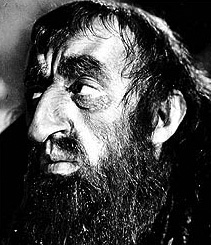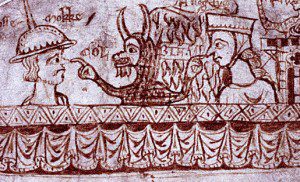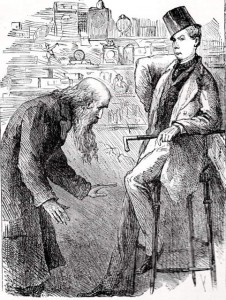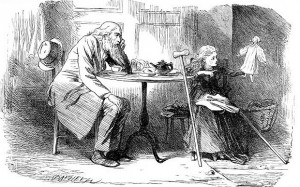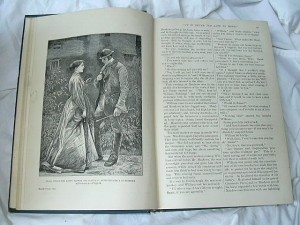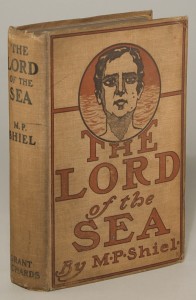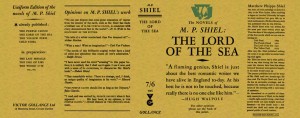Over the past few years, we Anxious Bench bloggers have dealt with many and sundry topics. As I look back, though, I am surprised to see one big omission, both my myself and my colleagues, which is that of Jews and Judaism, and Christian-Jewish relations. If we have touched on it, we have not said much. I suppose the topic just has not arisen, but it is, Heaven knows, a vastly important topic in the great scheme of Christian history.
I would just point to one contribution of my own that I wrote many years back, which is a paper called Sticking up for Jews? Anti-Semitic Stereotypes in the English Novel. Make allowances for when it was written, and pardon the fact that I have not updated it to take account of recent scholarly literature, which is substantial.
Let me just summarize my main themes here, and you can check out the whole text yourself if you are interested.
My theme is this. Like all European countries, Britain has a ghastly history of Anti-Semitism. Arguably, this was as bad as any in that Jews were expelled from England in 1290, and were not allowed to return until the 1650s.
In modern times moreover, British literature has a lengthy roster of unpleasant Jewish stereotypes. What makes Britain odd is that here at least, these are accompanied and countered by some really surprisingly positive images, and from times in the nineteenth century when we would think people would be pretty unenlightened.
Charles Dickens tried his best to apologize for his Fagin character when he turned out a saintly Jewish stereotype in Our Mutual Friend (1864). It’s a noble attempt but it fails because that character is just too virtuous to be true for any group, Christian or Jew. However well-intentioned, it’s overkill.
Far more surprising, and effective, is Charles Reade, who in his day was even more popular than Dickens. At first sight, his 1856 novel It Is Never Too Late to Mend uses every Jewish stereotype, making Jews alien and maybe even conspiratorial, but he uses these themes to create a strongly pro-Jewish effect. These Jews may look like suspicious Orientals, but they are entirely on the side of truth, justice, and the thoroughly Christian English hero, and they fight staunchly on the side of Righteousness and Decency. The only characters in the book who utter anti-Jewish sentiments are the depraved English Christian villains.
The book gives an odd effect. It’s like a conspiracy novel where you cheer for the conspirators. Once upon a time, it was also a well-known English popular classic.
And then there is the Lord of the Sea (1901), by M. P. Shiel, which defies all categorization. Read my account and then, even better, read the book.
Other titles come to mind, most obviously George Eliot’s proto-Zionist novel Daniel Deronda (1876), and of course several works by Benjamin Disraeli.
But here’s a question. Those are novels that come to mind from England. How about the United States? To the best of my knowledge, Jews do not feature much in pre-twentieth century American literature, neither as sinister plotters nor as surprise heroes. Hawthorne has some nasty passages, I know. Melville is sympathetic to Jews in his sprawling verse epic Clarel: A Poem and Pilgrimage in the Holy Land (1876), one of the great unread pieces in American literature. Otherwise, though, I can’t think of much.
Am I wrong? Am I neglecting obvious references?


